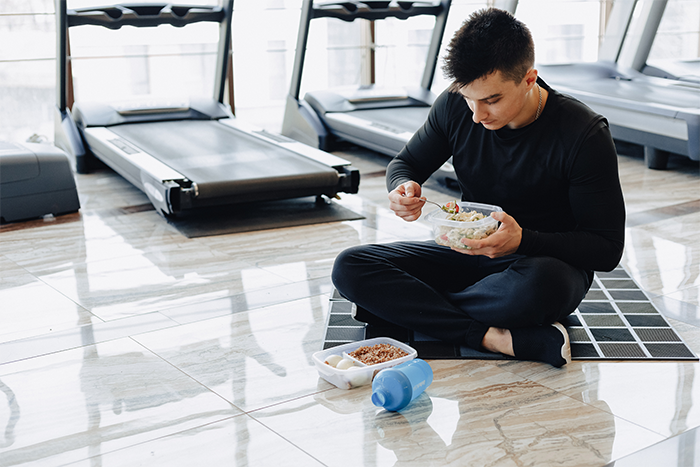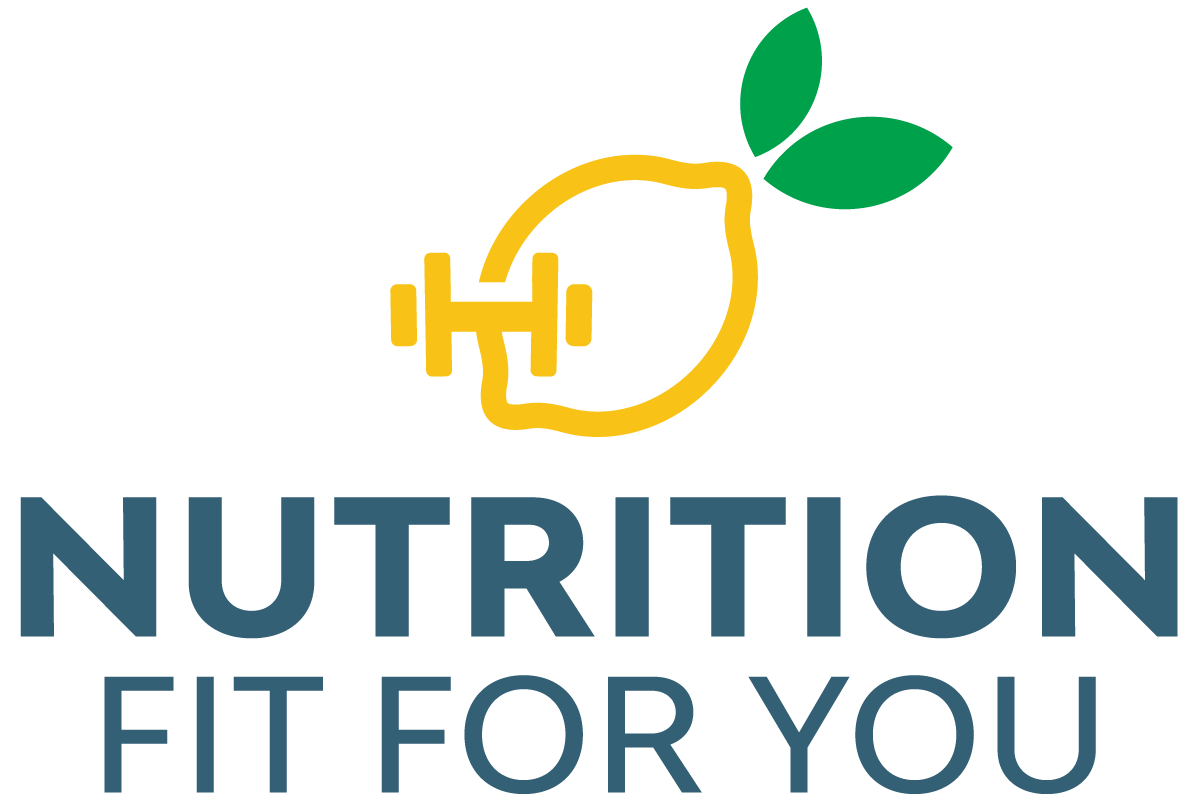Is Your Pre-Workout Regimen Delivering the Best Outcomes for You and Your Goals?

Introduction
With all the different pre-workout powders, protein supplements, and all-around performance enhancers, we tend to get lost in the advertisements and lose focus on the real task at hand – overall wellness and simplicity. For competitive athletes, what you eat or drink before, during, or after a workout can alter performance and make a difference. For the rest of us recreational athletes (yes, we are all athletes in our own way), the science still applies and what you read beyond this may be helpful. It has been proven that carbohydrate intake ~2-3 hours before an intense workout, team sport, and endurance event can help improve performance 3; but there doesn’t have to be a rigid schedule, and come to find out, there is no need to be spending money beyond your means for hyped up products that you don’t fully understand. This can be found in just the meals you normally eat throughout the day or in your simple snacks if your nutritional intake is adequate to recover liver and muscle glycogen stores throughout the day. In other words, pre-workout intake does not necessarily have to be its own thing, but your performance goals may be enhanced with adequate fueling before and after an event.
Functions/Benefits of Pre-Workout
When we think of pre-workout supplements, the first word to enter your mind is probably ENERGY. You are definitely correct on that one. However, choosing your energy source can be simple and ever-changing based on your schedule and basic needs. Below are some functions that you may not have thought of, that contribute to this energy source outside of just caffeine and carbohydrates.
-
Pre-workout fueling can prevent hypoglycemia
Another term we can associate this with is rebound hypoglycemia or a “sugar crash”. Our bodies are pretty good at regulating blood glucose throughout the body, but some people may be more sensitive than others. If you are someone who experiences symptoms of hypoglycemia during a workout, it may be helpful to bring gels or a sports drink to provide some easily digestible sugars to the body.
-
Helps settle your stomach, absorb some of the gastric juices, and ward off hunger
Not all carbohydrates are created equal, some forms of carbohydrate may not be as easily digestible for you like they may be for others, thus causing some sort of gastrointestinal upset. Choices will also vary from sport to sport, the timing of the event, and your personal food preferences.
This makes it a trial and error game, maybe you’re not used to a pre-workout whole food item, but you’re wanting to start training for a half-marathon. Those initial training sessions are going to be a great time to start playing with different options.
-
Fuels your muscles
Carbohydrates eaten far enough in advance get stored as muscle glycogen which, outside of fueling that specific muscle, enters the bloodstream and also feeds the brain. Benefits are seen from foods that are eaten anywhere from an hour in advance to the day before.
So, How Do I Implement a Pre-Workout Meal/Snack?
That depends.. Do you normally eat in the morning, is your big meal dinner, when are you normally exercising? There are many questions to ask yourself, so I’m going to provide you with a few examples.
Exercise between 60-90 minutes
Your snack should consist mainly of carbohydrates. Some options here maybe a piece of toast and applesauce or jam, whole fruit or dried fruit, granola bar, or sports drink. These types of carbohydrates include simple sugars that are quickly emptied from the stomach and become easily available to your working muscles.
Exercise lasting greater than 2 hours
For exercise lasting longer than 2 hours, your snack or pre-workout meal may consist of a carbohydrate source plus a protein or fat source to provide prolonged energy. Some options may include a piece of fruit or bagel and peanut butter, pancakes or french toast and eggs, or a bento box setup of apple slices, cheese, and nuts.
Size and Timing
The size of your meal will depend on your schedule and when you are able/comfortable to eat.
- Working out in the morning may mean having a carbohydrate-based snack 5-10 minutes prior (breakfast bar, pretzels, piece of fruit) or a carbohydrate-rich dinner the night before if the timing is too early for you to comfortably ingest any sort of food. If you cannot eat and still feel fatigued, try having a bedtime snack the night before including a carbohydrate and fat source to prevent low blood sugars the next morning. Personally, grabbing some pretzels or a sports drink is a pretty easy option in the AM.
- Having an event “mid-morning” will likely call for a similar scenario: light snack, good dinner the night prior. Or, if you’re a morning person, eating a nice breakfast around 2-3 hours prior to allow food to digest- examples include oatmeal with nuts and raisins or yogurt with granola and fresh fruit.
- Afternoon events or exercise will allow for a multitude of options based on your intensity level. You may opt for a hefty breakfast and lighter lunch based on hunger cues for a 1-2 hour workout; continuing to focus on choosing food items that do not promote GI distress and that YOU like to eat.
- After work or evening events, like the afternoon, can be based on your preferences. Just remember how heavy you’d feel if you ate a large meal right before a run. Not the best decision. Allow meals to digest for around 3 hours and prepare carbohydrate-based snacks if hunger cues begin to pop up.
Conclusion
If you’re curious as to what to eat or the timing of a meal before your workout, you might first ask yourself a few questions. How do I feel about my current regimen? Am I feeling any fatigue? Have I plateaued? Have I been experiencing any symptoms of hypoglycemia or gastrointestinal upset? Fueling prior to exercise can be a very beneficial addition, what and when will depend on the length of your workout and intensity. From there, you can look at which meal may count as pre-workout or determine if I need a snack 5-10 minutes prior. If your last meal before a workout is greater than 3 hours away, it wouldn’t be a bad idea to start trialing out some snacks to be eating within 30 minutes prior to exercise.
We also understand that this can be an overwhelming and confusing aspect to sports nutrition. A pre-workout meal or snack can only do so much if you’re not treating yourself respectfully with adequate hydration and consistent meal intake outside of your workout fueling timeline. Focusing on making decisions to treat you and your body with respect comes first. Outside of the food spectrum, this includes sleep, hydration, and stress management just to name a few. If it’s a struggle to find the right fueling technique, experience decreased performance, or find yourself in a battle between having a plan and improving your relationship with food. The dietitians at Nutrition Fit For You are ready to help you.
Other sources:
1 Campbell, B. I., & Spano, M. A. (2011). Nsca’ Guide to Sport and Exercise Nutrition. Human Kinetics.
2 Clark, N. (2020). Nancy Clark’s sports nutrition guidebook (Fifth). Human Kinetics.
At Nutrition Fit for You, we offer a non-diet, weight-inclusive approach that will lay the foundation for you to REBALANCE food, exercise and body image.
Follow us on:
Download the 7 Types of Hunger
Learn about each type of hunger—stomach hunger, heart hunger, and more—and learn to listen to your body with clarity.

